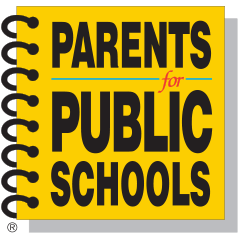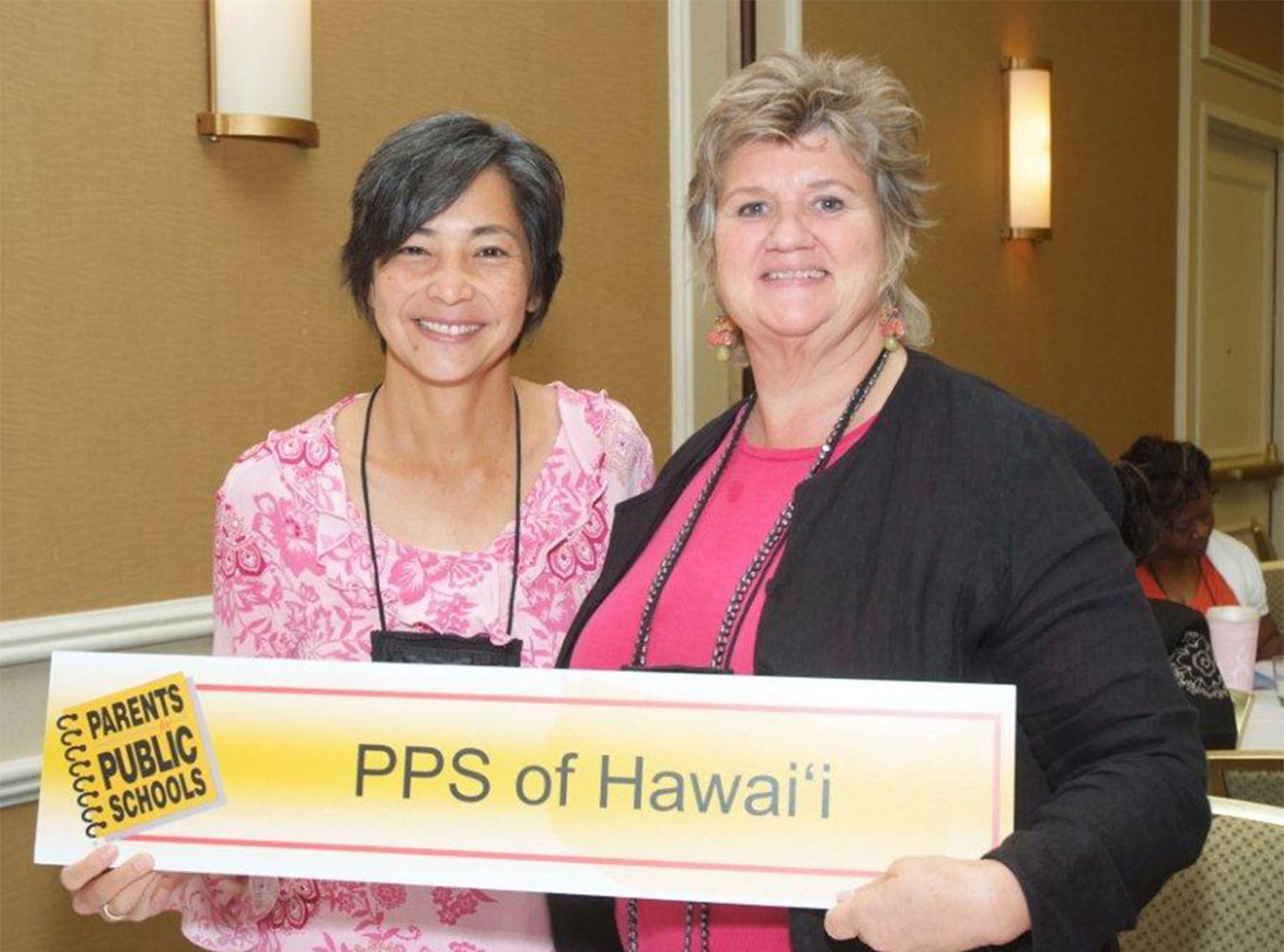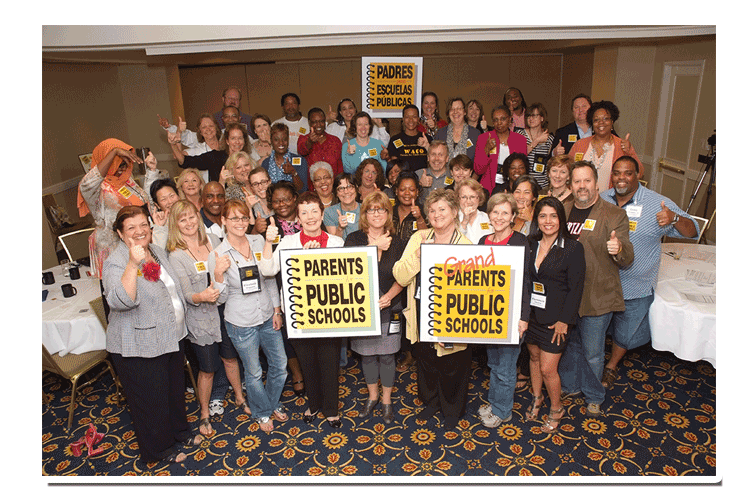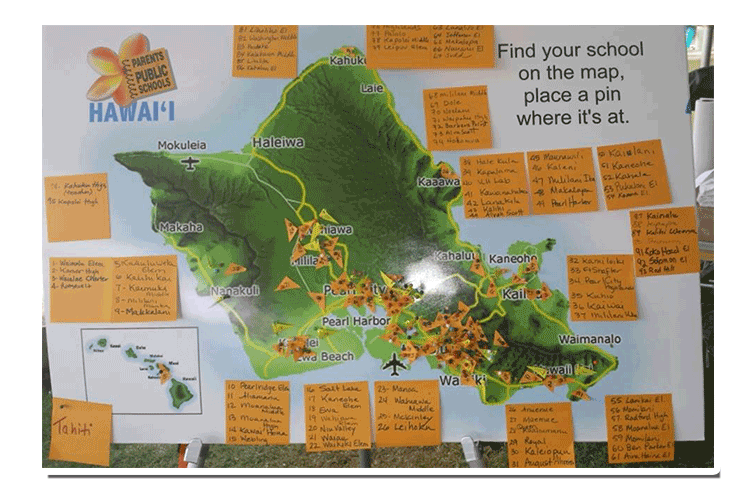Parents for Public Schools is a national organization of community-based chapters working with public school parents and other supporters to strengthen their local public schools. Each chapter has its own identity and yet each is a part of the PPS national network. This national network is for each chapter is a source of power, support, and expertise. PPS is invigorated by a diverse membership whose involvement in public schools helps to insure that quality public education is available equally to all children.
The chapter structure is integral to the identity and agenda of PPS, which is fundamentally a civic action and public advocacy organization. Through its work with individual chapters, PPS strengthens the ability of parents to advocate for better public schools, and helps parents become partners with school and community leaders in the process of educating children, and improving systems, structures, and policies at the local school level.
Currently, PPS has seventeen member chapters in 13 states.* The chapters are grassroots organizations that represent the education stakeholders of their local communities and concentrate on the issues of their local public schools while at the same time connecting local issues to national ones. The PPS National Office organizes, supports, and connects chapters to help maintain the focus on our organization’s unifying mission.
The national office provides a clearinghouse of information and best practices, technical assistance, and training that assists chapters to serve their communities while serving as standard bearers for the PPS mission. PPS at its core is a civic action and public advocacy organization. Through its work with individual chapters, PPS strengthens the ability of parents to advocate for better public schools and helps parents become partners with school and community leaders in the process of educating children, and improving systems, structures, and policies at the local school level.



